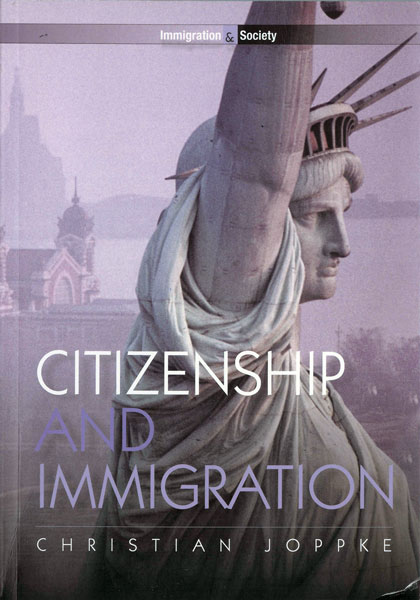There has been growing support for anti-immigrant, ultra-nationalist politics in many Western states in recent years. This deep disquiet with the realities of human mobility in the age of globalization suggests a profound political crisis. Christian Joppke’s latest work, Citizenship and Immigration, considers the future of national liberal citizenship in a century likely to be characterized by global migration.
A review by Katy Long.

The concept of national citizenship – however universal the rights it bestows – essentially depends on the exclusion of those who cannot claim membership through the traditional channels of birthplace or parentage. Joppke presents compelling evidence that access to Western citizenship eased significantly in the second half of the 20th century. Migration has played a key role in driving this de-nationalization of citizenship, as seen in resident aliens’ growing entitlement to naturalization and dual citizenship.
The politics of citizenship entitlement post-2001 gives us less reason for optimism. Immigrants’ access to liberal citizenship is increasingly presented as a privilege rather than a right, particularly in Europe. This change has occurred in part as a response to mass immigration and a perceived need to counter rising support for ultra-nationalist groups. It also reflects a drive to ‘re-ethnicize’ citizenship in order to combat populist anti-immigration opinion. This reveals an uncomfortable truth, ‘that democracy is bad for immigrants and for liberal citizenship’ (p.53).
Yet is citizenship itself still important? Post-nationalists have argued that our rights now depend on ‘personhood’ not ‘citizenship’, and Joppke agrees that there are many human rights unrelated to citizenship. Yet he is careful to stress that many aliens’ rights are both stratified and reversible, and do not offer the same protection as citizenship. Using concrete examples, he details the declining rights of permanent resident aliens as a result of anti-terror legislation following 9/11.
Citizenship and Immigration also examines one of the most fundamental dilemmas posed by multicultural immigration. How can a neutral liberal state foster a common, unifying identity among its national citizens? Joppke traces the recent introduction of formal citizenship tests, arguing that liberal states such as Australia and the United Kingdom have found themselves trapped in a ‘paradox of universalism … [They] cannot name and enforce any principles that distinguish “here” from “there”’ (p.130). An inability to articulate a distinct national – as opposed to liberal – set of values has led instead to the rise of ‘identity liberalism’, drawing crude lines between ‘liberal’ and ‘illiberal’ immigrants, and facilitating political discourse aimed above all at the exclusion of ‘illiberal’ Muslims.
Joppke concludes by considering the future of citizenship. He argues that European Union ‘citizenship-lite’ will be the ‘citizenship of our time’ (p.161): instrumentalized, de-nationalized and continuing to erode the distinction between citizen and immigrant by emphasizing the rights of residency. There is, however, a dark side to this ‘liberalization’. The construction of ‘Fortress Europe’ has already drawn new dividing lines between the haves and the have-nots, who are now excluded not only from citizenship, but from entering liberal states at all.
Citizenship and Immigration has obvious limitations. As Joppke acknowledges, the study is geographically narrow, silent on the implications that immigration has for liberal citizenship in the global South. In studying citizenship and immigration, Joppke largely ignores the related effects of emigration upon citizenship. More seriously, while the book offers a perceptive and critical analysis of recent state trends in dealing with immigration and citizenship, it offers no solutions in response.
These omissions do not detract from Joppke’s considerable achievements in detailing the complex and often contradictory Western responses to the impact of immigration on citizenship. In 200 pages Joppke covers an enormous amount of material and makes a broader scholarly literature accessible to a wider audience. Many polemics have been written on these subjects in recent years. For those who would rather engage in reasoned and intelligent discussion, Citizenship and Immigration marks an important and welcome contribution.
